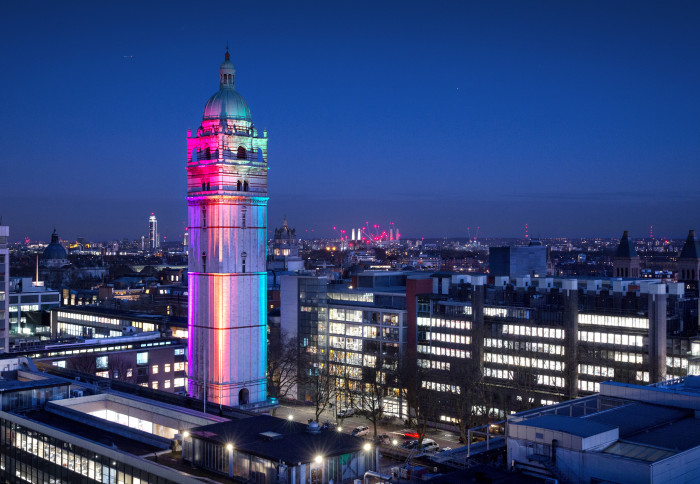Geoscience course stops running Oman fieldtrip to be more inclusive

The Oman fieldtrip for Petroleum Geoscience MSc students will not run in future as it would pose a risk to LGBTQ+ students and staff.
To provide a teaching and learning experience that is safe and inclusive for all involved in the Petroleum Geoscience MSc, the Department of Earth Science and Engineering will not run a fieldtrip to Oman from 2020-21 onwards.
Professor Gary Hampson, Petroleum Geoscience Course Director, says, “The reason for this change is simple. Homosexuality is illegal in Oman, and there are minimal other protections against discrimination for people identifying as LGBTQ+. This may lead to an atmosphere that is not conducive to learning for all and, critically, it poses a potential legal threat and risk to the safety of our students and staff.”
Dr Cédric John, Reader in Carbonate Systems and Carbonate Reservoirs in the Department of Earth Science and Engineering, adds, “Although we have not encountered discrimination on previous fieldtrips, LGBTQ+ students and staff would fall under Omani laws if they were enacted. We think that this decision is a critical step to support a more inclusive experience at Imperial.”
The Oman fieldtrip was implemented for students to develop their understanding of carbonate sedimentology, and the change in the delivery of this content will be addressed in two ways. Firstly, the Applied Sedimentology classroom-based learning will benefit from addition of virtual material from reservoir outcrop analogues, and so will cover some of the same learning outcomes as the field trip. Secondly, it provides the opportunity to add a Machine Learning for Geoscientists module. This updates the course to provide more of the skills needed for a career in the modern energy industry, and builds on the computational geoscience expertise in the Department, among researchers and from our Applied Computational Science and Engineering MSc course.
Working to our values
The values of the Department of Earth Science and Engineering are: Excellence, Supportive, Inclusive, Inspiring, Integrity and Innovative. Removal of this fieldtrip from the curriculum is consistent with the value “Inclusive”. This change supports the College and Department’s commitment to equality, diversity and inclusion.
Professor Mark Sephton, Head of Department of Earth Science and Engineering, says: “I am happy that we have removed a risk to LGBTQ+ students and staff by no longer running the fieldtrip to Oman for Petroleum Geoscience MSc students. This is another positive change and we will continue to strive to improve our inclusivity.”
Chris Jackson, Professor of Basin Analysis, who worked to instigate the change, celebrated the news on Twitter, saying he was delighted that our MSc Petroleum Geoscience students will no longer attend the Oman-based carbonate fieldtrip due to the location being unsafe for our LGBTQ+ staff and students.
Imperial 600 looks forward to working with the broader college community to further develop policy and guidance that will help ensure staff and students’ well-being is protected Imperial 600
Co-chairs of Imperial 600, the College's network for LGBTQ+ staff, postgraduate students and their allies, Caz Ulley and Joel McConnell, said “Imperial 600 looks forward to working with the broader college community to further develop policy and guidance that will help ensure staff and students’ well-being is protected both on campus, and when participating in international study opportunities. We are pleased to see that Petroleum Geoscience took a strong stance to support LGBTQ+ students and staff, and would welcome requests to work with other faculties and departments as they create both inclusive and diverse teams, and international engagement opportunities for their key stakeholders.”
To help Imperial develop as an organisation that is fully inclusive of LGBTQ+ people, we participate in the Stonewall Workplace Equality Index. This scheme provides an external benchmark against which we can assess our progress with delivery an action plan that will result in real changes for inclusion.
Article text (excluding photos or graphics) © Imperial College London.
Photos and graphics subject to third party copyright used with permission or © Imperial College London.
Reporter
Victoria Murphy
Institute of Global Health Innovation